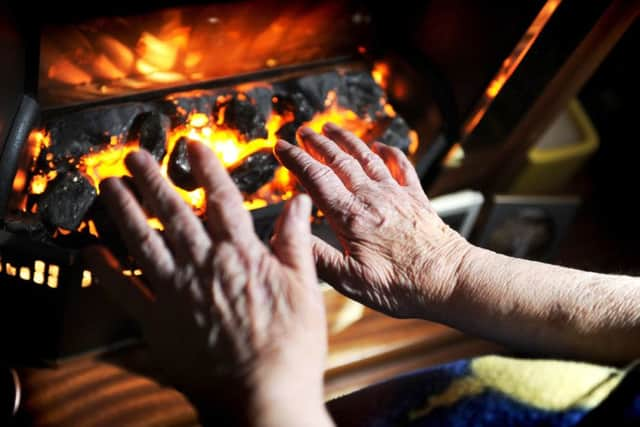Fuel poverty in Sussex is causing excess winter deaths says charity
and live on Freeview channel 276
The figures come from the Office of National Statistics.
With fuel bills set to rise again, the charity is calling on the Government to provide central investment to improve energy efficiency in the least efficient homes and councils to do all they can to enforce housing standards.


NEA has released the call to action on Fuel Poverty Awareness Day (Friday February 15).
Advertisement
Hide AdAdvertisement
Hide AdThe day aims to raise awareness of the plight of fuel poverty, facing millions of households across the UK.
Adam Scorer, chief executive of NEA, said: “Everybody has the right to live in a warm and safe home but tragically, many people died needlessly last winter because of cold homes.
“Living in a cold damp home can also lead to extremely poor health, especially in those who are vulnerable such as young children, older people, and those with long term sickness and disabilities.
“With fuel bills set to rise again, without urgent local and national action we are worried the same will keep happening each winter.
Advertisement
Hide AdAdvertisement
Hide Ad“As well as needless deaths and misery, this would continue to place a huge strain on our already stretched health services.”
The charity says nationally more than 15,000 people died needlessly last winter as a direct result of cold and unsafe homes.
NEA highlights that this is more fatalities than road traffic accidents and substance abuse combined.
It says improving the energy efficiency of homes can prevent these deaths and suffering but there has been a dramatic drop off in delivery of home energy efficiency improvements nationally and a deep-cuts to council funding since 2010 has made it more challenging than ever, and in some cases impossible, to commit the necessary resources for monitoring and enforcement of housing standards.
Advertisement
Hide AdAdvertisement
Hide AdMr Scorer added: “Despite the continued squeeze on resources locally, using current enforcement powers, their wider strategic responsibilities and place-based knowledge; local authorities are well placed to take action against landlords who do not meet statutory energy efficiency requirements or minimum housing safety standards.
“NEA is also calling for the introduction if a new national Clean Growth Fuel Poverty Challenge Fund, providing necessary central investment to tackle the cold homes crisis once and for all. As well as helping the poorest and most vulnerable to afford to live in a warm, dry home this would also support small business growth in the region, achieve major carbon emissions reductions, improve local air quality and reduce health and social care costs.
We are urging friends, families and neighbours to keep a lookout for any of these dangerous coping strategies. If they know someone who maybe struggling over the winter, information on what support is available can be found on NEA’s website.”
NEA also highlights the dangerous coping mechanisms that some people in fuel poverty are being forced to turn to including; using candles instead of electricity and even barbequing in the sink.
Advertisement
Hide AdAdvertisement
Hide AdFuel Poverty Awareness Day is coordinated by NEA who have also developed resources to direct people to help and advice as part of day. These can be found on the NEA website www.nea.org.uk and twitter page www.twitter.com/NEA_UKCharity, along with more information on how to take part in its fundraising event, “The Nation’s Biggest Housewarming”.